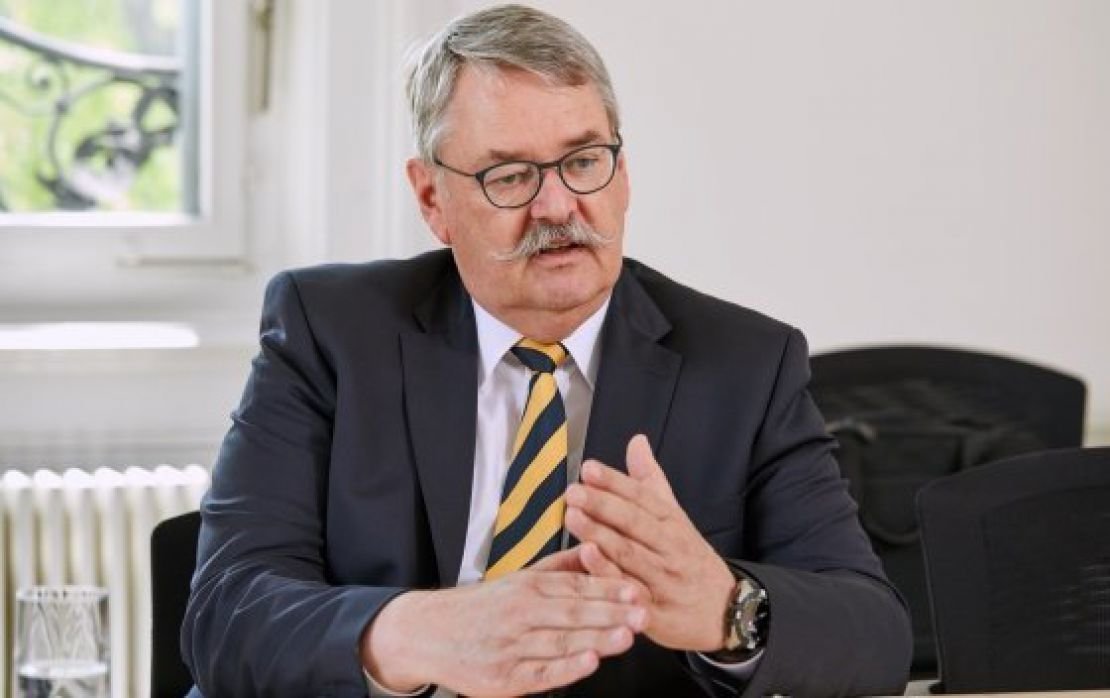
Publications - Guest articles
Guest author: Werner Meier, Delegate for National Economic Supply
National Economic Supply wants to prevent, not cure
25.07.2022
At the turn of the century, the public believed that security of supply was guaranteed for the future, and this fact was hardly ever questioned. But the war in Ukraine initiated by Russia is now forcing us to rethink the situation very quickly. A shortage of electricity and gas during the coming winter can no longer be ruled out: a threatening prospect for many companies and businesses.
In our country, it is up to the business sector to ensure the availability of goods and services. Only when the business sector is no longer able to fulfil this constitutional mandate does National Economic Supply (NES) take measures to ensure the availability of important goods and services. However, it only takes action when these goods and services are vital for the economy or for the population, when an actual shortage is on the horizon or has occurred unexpectedly.
NES deals with certain staple foods as well as energy sources and therapeutic products. To these must be added supply infrastructures such as logistics, energy networks, information and communication technologies, and the services based on them. As a country with few raw materials, Switzerland is rarely able to meet its needs autonomously and is more or less dependent on foreign countries in almost all areas. For example, our country is one of the most important locations in the world for the pharmaceutical industry, but many pharmaceutical raw materials and active ingredients are imported. A supply shortage of a single component of a vital drug can quickly lead to a shortage and thus endanger lives. As our dependence on foreign countries and imports is high, shortages are often not “homemade.”
The private sector always bears joint responsibility
National Economic Supply monitors the situation to ensure that there is no shortage or that it can be alleviated as far as possible. This involves very close cooperation between the state and the private sector. Around 250 experts from the private sector and specialised administrative branches make up the militia organisation and put their expertise and experience at the service of NES. The organisation is divided into the divisions of Food, Energy, Industry, Therapeutic Products, Logistics and ICT (information and communication technologies). National Economic Supply receives administrative and legal support from the Federal Office for National Economic Supply (FONES).
The fast pace of economic life today requires that vital supply systems and critical infrastructures be better prepared for crisis situations by means of targeted preparatory measures. In cooperation with companies and industry associations, NES develops measures to improve resilience. In certain areas classified as vital by NES, it can even oblige companies to take precautionary measures. This includes, for example, setting up and operating compulsory stockpiles.
From a feared power shortage to an energy crisis
The main focus in security of supply in recent years has been on electricity and possible supply shortfalls or grid instabilities, with warnings issued by ElCom for 2025. In winter in particular, peak load is insufficiently covered by domestic production, as consumption is higher at this time of year while production from hydropower plants is lower.
The war in Ukraine has exacerbated the situation, and the country is no longer threatened by just a shortage of electricity for 2025, but has to avoid shortages of almost all energy sources during the coming winter. It is likely that gas will become a scarce commodity as Russia has already started closing the gas tap. Gas is used for electricity production in many cases, so provision must also be made for electricity, all the more so since almost half of France’s nuclear power plants are out of operation for technical reasons, making it more difficult to buy electricity from our neighbours. It is important to avoid quotas and, in the worst case, even the shutdown of installations running on electricity or gas, and the electricity and gas suppliers are working on this at full speed this summer.
Prevention and leaving nothing to chance
At the moment, we need to consider all eventualities in order to be prepared for the coming winter. During the coronavirus pandemic we learned that in times of emergency, each country is first concerned with its own well-being. Although some people complained about the lack of solidarity afterwards, there is no guarantee that in a new emergency situation with shortages, new barriers will not be erected at the national borders. This is why the experts at National Economic Supply are preparing management concepts involving more or less drastic measures for the economy. We all hope that these concepts will never have to be applied and implemented.
